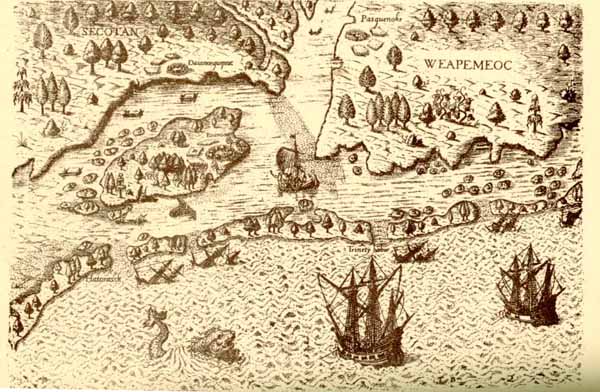 When Mr. and Mrs. George Fry arrived in the New World nearly four centuries ago, they brought with them not just dreams of a better life, but a curse — a genetic mutation that has caused thousands of their descendants to develop cancer.
When Mr. and Mrs. George Fry arrived in the New World nearly four centuries ago, they brought with them not just dreams of a better life, but a curse — a genetic mutation that has caused thousands of their descendants to develop cancer.
Scientists reported on Wednesday that they had tracked a mutation that increases the risk of developing colon cancer back to the Frys, who sailed from England to what would become the U.S. around 1630.
Roughly a dozen generations later they have produced thousands of descendants, many of whom carry the colon cancer mutation that appears to have arisen in one of the Frys.
Colon cancer strikes about 150,000 people a year in the United States. About 5% of these cases are caused by dominant genetic mutations that will (without preventative treatment) cause almost every carrier to eventually develop colon cancer.
Deborah Neklason’s team at the Huntsman Cancer Center at the University of Utah studies one of these familial colon cancer mutations — a change in a gene called APC that causes a form of the disease called attenuated familial adenomatous polyposis (AFAP).
According to a report published in the January issue of Clinical Gastroenterology and Hepatology, fewer than 1% of cases in the US are due to this particular genetic change.
AFAP increases a person’s risk of developing colon cancer by age 80 from 1 in 24 to greater than 2 in 3. According to Neklason, precancerous polyps are often found in mutation carriers by their late teens. Colon cancer has been diagnosed in individuals with the mutation as early as their 20s
Neklason and colleagues began their study by looking at the DNA of two large families with histories of colon cancer — one in Utah and one in New York. They then turned from the laboratory bench to historical records, where they found that the two families share common ancestors.
By combining both genetic and genealogical data, the scientists were able to show that the cancer-causing mutation in both families originated with the Frys.
Biologists refer to the introduction of a new mutation into a population by one or a few immigrants as a founder mutation. The mutations are especially common among populations that have grown rapidly from a small number of founding individuals.
“The fact that this mutation can be traced so far back in time suggests that it could be carried by many more families in the United States than is currently known,” said Neklason in a University of Utah press release. “In fact, this founder mutation might be related to many colon cancer cases in the United States.”



